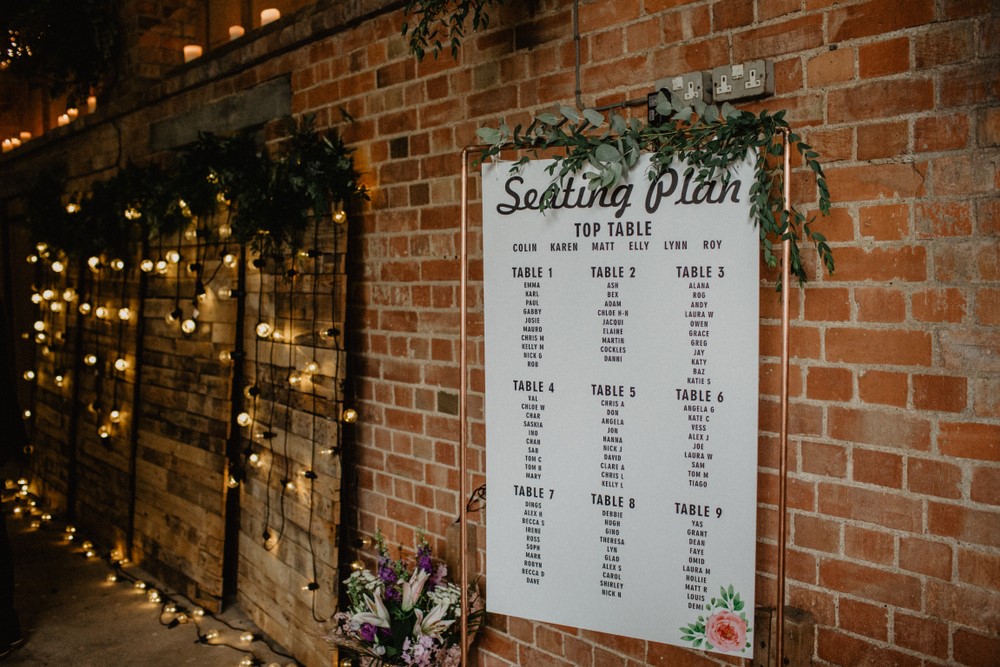
Asking a wedding not to produce family drama means asking it to act against its very nature. A new family unit is being forged, in public, in a ceremony that is typically witnessed by people who care deeply about the couple involved. When a family gathers together, something as mundane as opening up a bottle of ketchup can dredge up a long-standing grievance. Not only is a wedding a legitimately big deal, but with two families (at least) involved, you can comfortably double the drama – especially if there is no chance of predicting how they are going to interact together. If you make a point of excluding people who you know are going to start something, their very exclusion can become the drama. This is why wedding kerfuffles keep advice columnists employed. But while it’s hard to entirely eradicate family drama from your wedding, there are still ways to avoid it. Here are some ways to play dodgeball.

Source: Nicki Shea/Shutterstock.com
Get a Final Count
The wedding guest list was ranked as one of the highest wedding stress factors even before the advent of pandemic-limited gatherings. But there are also studies that show weddings with bigger guest lists can track with increased marriage stability. It’s worth noting that the other major source of stress is the budget, which is often related to the guest list size. But while inviting more people actually may correlate with marital stability, overspending on a wedding is a major contributing factor in divorce. That makes sense. The people you invite to your wedding often represent your support network, so it makes sense to prioritize those people and save money elsewhere, whether that means spending less on decor or doing the research on affordable wedding bands.
However, it’s understandably frustrating if, even after scrimping to make sure there is room for a guest, they bring someone else along who wasn’t part of the count. It’s important to be as clear as possible about plus-one protocol in the invites. Or maybe your parents want to invite someone who is a stranger to you, and if they are helping pay for the wedding, they feel they should have a say in the guest list. Compromise by suggesting additional celebrations later. Unless there are strict restrictions on guest numbers, be mentally prepared to graciously accommodate a few crashers (or consult the section below on enlisting a referee to handle ejections). There will also likely be some people who don’t make it. Your partner is the only person whose presence or absence truly matters.
Catch the Ball and Control the Narrative
Even though it’s called dodgeball, the game’s most effective move is actually catching the rubber spheres being lobbed in your direction. Not only does that eliminate your opponent, but it puts you back in control. The easiest way to regain control at your wedding is remembering that it’s your wedding. It may be a public ceremony with a lot of people involved, but the vows are limited to two people. Just because someone causes a scene at your wedding doesn’t make you any less married. Whenever you’re stressed about drama, look down at your beautiful engagement ring and remember what this day is all about- you and your partner.
Watch Your Partner’s Back
Of course, it’s very easy to say, “Don’t let it get to you,” until the bride catches the mother-in-law trying on the wedding dress. When something like that happens, it’s important to make sure you set the right precedent by sticking up for your partner, even though that means standing up to someone else who is supposed to be on your side. Marriage is an even more important team sport than dodgeball, so make sure you watch your partner’s back. Communication is a key part of this.

Source: sirtravelalot/Shutterstock.com
Run Drills
You can’t be prepared for everything, but if you know that your uncle tends to get overserved and talk politics, maybe don’t put him next to the bar or next to your great aunt, who tends to get overserved and correct your uncle. If this is the first time the love of your life is meeting most of the other people in your life, it’s not a bad idea to run through the guest list and give them the rundown. A little context can make it easier to shrug off a rude comment, especially if that context is “Never going to have to see this person again.” And if these are the people they are going to be around for decades to come, it’s best to learn how to manage them as soon as possible. In fact, start interacting with the family now, so it’s not as overwhelming at the wedding. Don’t take these stress tests to “If you can dodge a wrench, you can dodge a ball” levels.
Enlist a Referee
You are going to have a thousand things to do on your wedding day. Give the job of worrying about the family to somebody else. Recruit a sibling to head off drama. Anyone can move chairs around, but it’s their one task to make sure that your aunt’s ex-husband doesn’t make that “impromptu” speech that he trots out at every family gathering. Unload the responsibility of bouncing uninvited guests on the friend who always looks so authoritative in a suit.

Source: szefei/Shutterstock.com
Duck Every Question But One
There are as many variations to family drama at weddings as there are weddings. But whether you are planning a seating chart that accounts for blended families or navigating different cultural traditions, there’s really only one important question, and the answer is “I do.” You can get out of pretty much every other conversation. The good news is that there are a hundred valid excuses to attend to something else, especially if that something else is spending time with the person you are marrying.
So, once you slip on your stunning yet affordable wedding bands, let go of the drama focus on the one thing that matters: your new spouse!














